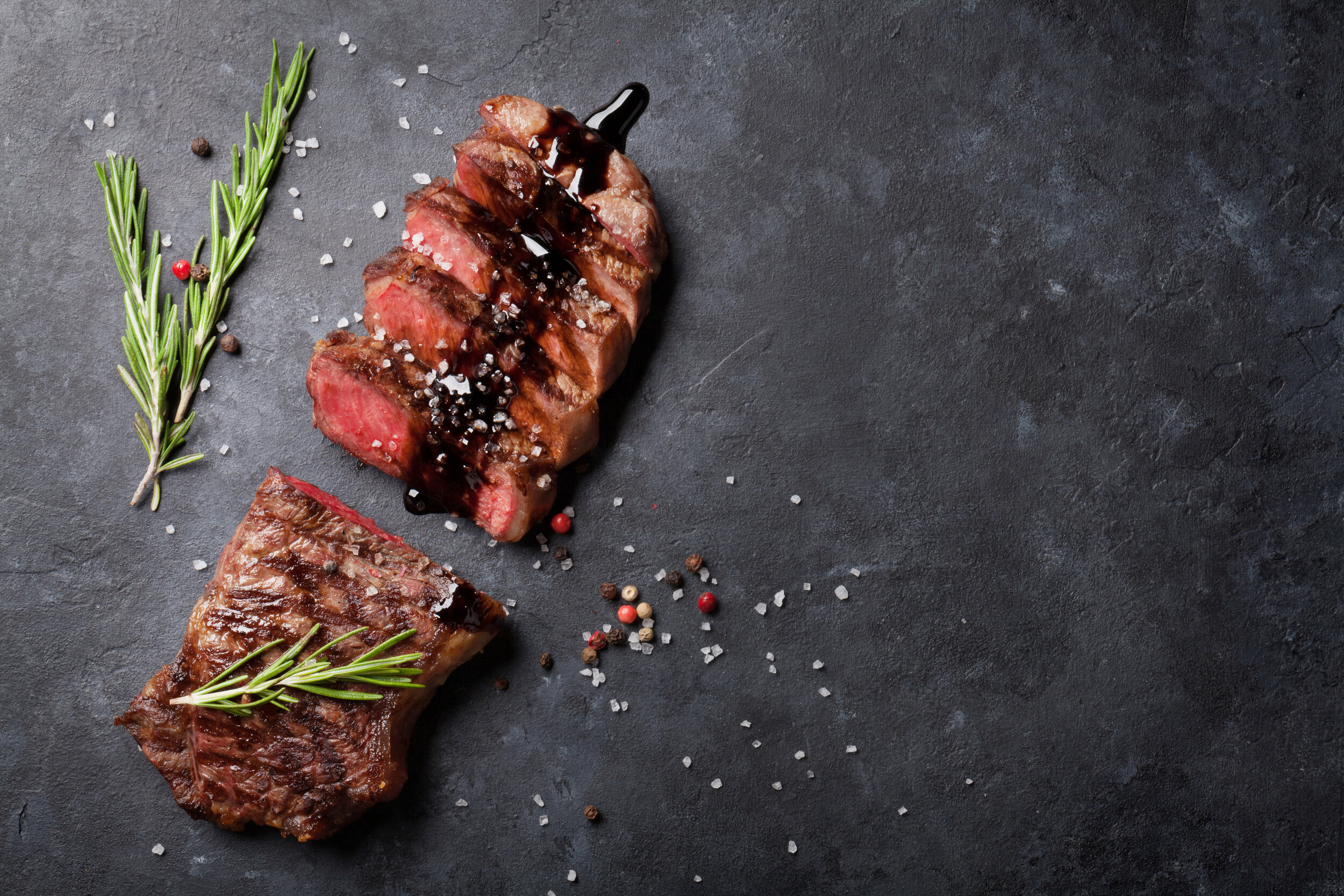
100% Grass Fed & Finished Beef
Nutritious, clean, locally raised in the Alberta foothills
Know where your food comes from.
The saying, “You are what you eat” applies equally to cows as it does to humans. The way in which cattle are fed has a major effect on the nutrients in the beef. In fact, grass fed beef offers a long list of important vitamins and minerals and many other nutritional benefits.
Close to home
Free to roam and pasture raised in southern Alberta’s foothills, the grass finished cattle from VBP+ certified Burke Creek Ranch are born and raised on a 100% grass diet their entire lives. There is no question of food origin here. Your beef is born, raised and finished on an Alberta family ranch with a history—four generations deep.
Open pastures
Burke Creek Ranch Angus are born in open pastures, raised on native grasses and natural spring water. They are finished on this fresh native grass and moved to new pastures frequently to ensure optimal nutrition. There is no confinement here. No added hormones or antibiotics are used and animal health is meticulously tracked and documented. Learn more about how we manage our herds>>
Tastes better
“We are so glad to have found Burke Creek Ranch as a beef supplier. I’m a picky consumer when it comes to sourcing meat for my family. Not only does their beef taste far better than alternatives, but I feel good about the health benefits and supporting local.” -Jo W.
High Vitamins & Nutrient Value in Grass Fed Beef
Grass fed beef has many nutritional benefits and is loaded with vitamins and minerals.
Up to five times the amount of heart-healthy omega 3 acids, with a 3:1 ratio of Omega 6 to 3 (up to 20-1 for grain finished beef)
Loaded in bio-available iron
Unprocessed source of clean protein
Pure source of collagen
High in L-Glutamine (aids in digestion)
Zinc, Selenium, Potassium, Beta-carotene (aids in production of Vitamin A)
B vitamins, especially vitamin B12, which is key for brain health
Four times higher in Vitamin E, a powerful antioxidant
Lower in Fats: Grass fed beef has less fat overall and less calories with lower monounsaturated fats and double the amount of conjugated linoleic acid (CLA) as grain fed

Grass fed beef is delicious!
Many people prefer the delicious taste of natural grass fed and finished beef.
Highly recommended
“Since switching to Burke Creek Ranch meat, my family has been loving the delicious beef. I served it to my kids, without telling them where it was from, and they commented on how good it tasted. They are fussy eaters so I was thrilled. We love it and don't want to get out beef anywhere else. We have told all our family and friends. I highly recommend it!” -Michelle M.
Health Benefits of Beef
Still wondering about the health benefits of beef? Read an excerpt from the article Everything You Ever Wanted to Know About Beef: Grain vs. Grass fed for reasons to include beef in your diet.
Decreasing Inflammation
Going back to omega 3 fatty acids, grass-fed beef is highly anti-inflammatory for this reason. While grain-fed beef is higher in omega 6 fatty acids (which can be inflammatory when consumed in high amounts) grass-fed beef is five times higher in anti-inflammatory omega 3 fatty acids. Grass-fed beef also contains twice as much conjugated linoleic acid (CLA), which has been linked to lowered body fat.
Beef Supports Muscle Mass
Beef is one of the best protein sources for maintaining muscle mass. It is a complete protein, meaning that it contains all of the essential amino acids (those that you must obtain from foods).
Beta-alanine is an amino acid found in beef that creates carnosine, a dipeptide that is a key player in muscle function. Studies have shown that high levels of this amino acid are responsible for decreased muscle fatigue during exercise, along with overall improved athletic performance.
Beef Prevents Anemia
Anemia is a fairly common condition that causes decreased red blood cells, therefore making it difficult for the blood to carry oxygen. Iron deficiency is one of the primary causes for anemia, and beef is one of the best dietary sources of this crucial mineral.
Cook on a lower temperature
Since grass finished beef contains less fat, it is recommended to cook on a lower temperature to rare or medium rare, or “low and slow” for well done tastes and cuts. Grass fed typically takes 20-30% lower cook time and temperatures. For best results remove butcher paper and fully thaw before cooking. Bring to room temperature, rub with olive oil, season and follow your favourite recipes.
Best burger ever
“I just fed my three teenaged boys Burke Creek Ranch burgers. Probably the most meaningful feedback would be from my sons who called this ‘the best burger ever.’” -Mike K.


